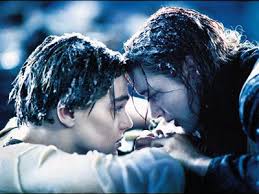Prologue--These are notorious for being solely backstory, which is probably why they've developed a bit of a bad reputation. Make sure what you have in your prologue (if you have one) can't be sprinkled in somewhere else instead.
First Chapters--This is where it's most tempting to put in big blocks of backstory. Resist! Your story should start in the middle of things. Readers don't have to know all the background yet, get them to the action so you can hook them. Pay particular attention to chapters 1-3 in your first draft. Many times it's where we as writers are working out the story for ourselves (which is fine as long as you go back and cut them during revision).
--Make sure that the conversation is realistic and that there is a reason for it to be happening besides slipping in backstory to the reader.
NOT "I can't believe you cheated on me six months ago with someone half my age." (the guy would already know that)
INSTEAD "How's your new bimbo? Has she graduated high school yet?"
--Make sure the conversation comes up naturally and not out of the blue. Something needs to trigger that discussion.
--Use action to break up the dialogue so it doesn't start sounding like an info dump.
Flashback
Where your character relives in their head a past event as it happened. Unlike a memory, they don't filter the events through their current point of view.
--Be very careful with this one. Many people advise against flashbacks. But I think if used correctly and sparingly they can work.
--Something has to trigger the flashback. That memory needs to be brought to mind by some object, situation, person, etc.
--Make it clear that it is a flashback so your reader doesn't get confused. Some people use italics to help with this.
Memory
Similar to flashback, but the memory is seen through the person's current POV.
--Sprinkle this in. Like everything else, large chunks of prose on a memory will get tedious.
--Just like the others, the memory must be triggered by something. Don't have your MC vacuuming and just suddenly think of how her father died (unless it was death by vacuum).
--Can build and foreshadow throughout the story, not revealing everything up front. For instance, in my romance, my MC goes to a concert and for a moment she's reminded of a tragic night many years ago. But all I show is that she has a sick feeling and that she remembers to the day how long it's been since she's seen a concert--which lets us know something important happened back then, but I don't say anything about what it is specifically, just foreshadow.
--Ex.) He smiled at her, and for a moment, she was reminded of the boy he used to be, the one she used to love. (See, that tells us they had a previous relationship and that something changed along the way. Just enough to whet the reader's appetite.)
Thoughts
Using direct thoughts instead of narrative.
--This doesn't have to be a specific memory, but can let us know that there is something there behind the thought.
--i.e. "Don't you just let go and have fun sometimes?" he asked. She shook her head and averted her eyes. "No." Not anymore.
Action
Sometimes you can use some event in your story to relay past events.
--i.e. A news story comes on TV talking about a cold case murder that relates to your MC.
The easiest way for me to figure out how to put in backstory is to think like a screenwriter. They cannot tell you things in a movie, they have to show it all. So how would I convey this information if it were a movie?
Alright, so those are my tips, what are some of yours? How do you sneak in your backstory?






































































































